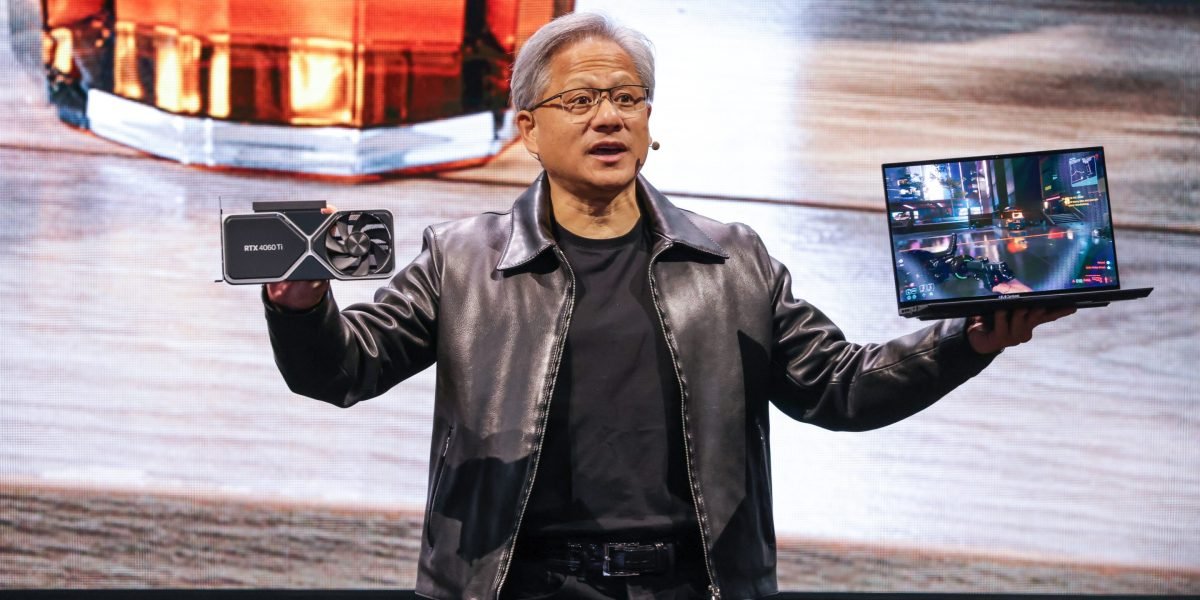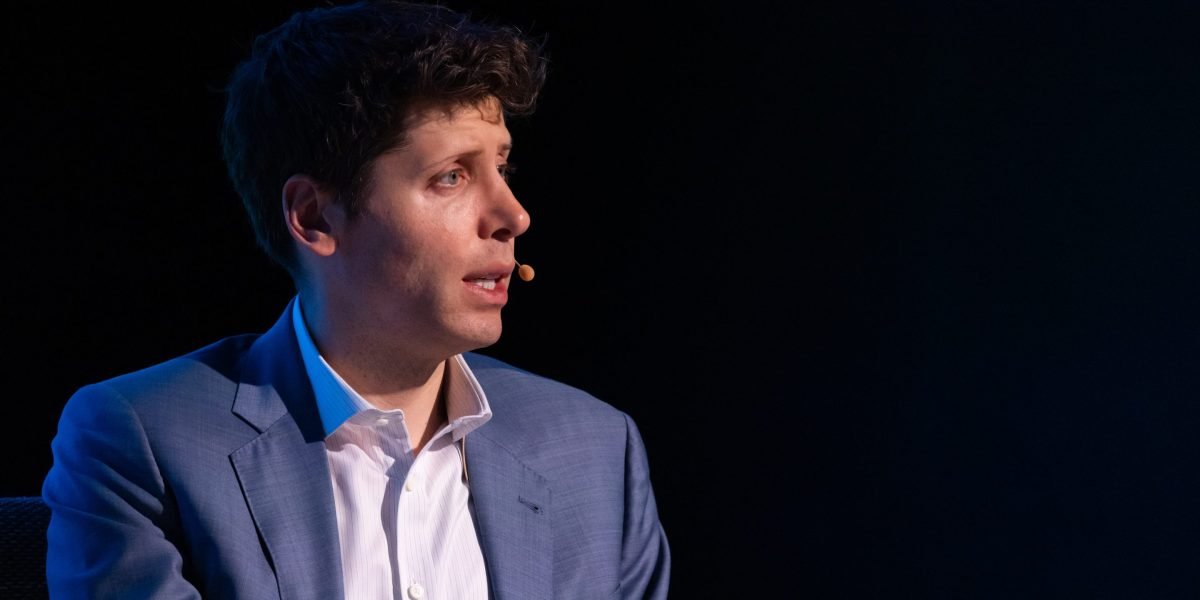The recent artificial intelligence boom has been welcome good news for Nvidia’s business following a period of battered revenue and supply chain snarls.
But the A.I. frenzy could be an opportunity for everyone, not just the Santa Clara, Calif.-based semiconductor company. The wide adoption of A.I. could help level the playing field in digital technology without requiring people to learn coding skills, according to Nvidia CEO Jensen Huang.
“The programming barrier is incredibly low. We have closed the digital divide,” he said at the Computex forum during his keynote speech in Taipei on Monday. “Everyone is a programmer now—you just have to say something to the computer.”
Huang added that the rapid pace of development in A.I. will have far-reaching effects in society.
“The rate of progress, because it’s so easy to use, is the reason why it’s growing so fast,” Huang said. “This is going to touch literally every single industry.”
The Nvidia chief’s bullish outlook on A.I. comes days after the company offered blockbuster earnings in the first quarter—and a revenue forecast for the current quarter that, boosted by soaring demand for A.I. chips, topped analyst estimates by over 50%. Chips made by Nvidia are used to power various A.I. tools, including the ubiquitous OpenAI chatbot, ChatGPT.
Nvidia’s shares rose over 24% last Thursday following the forecast, and the frenzy catapulted the firm to an almost trillion dollar market capitalization—a status currently held by only five companies, including Microsoft and Apple.
‘New computing era’
Speaking at the Taipei event, the chief of the most valuable semiconductor company in the world said that advanced A.I. heralded a “new computing era.” Huang noted that just like personal computers and mobile phones were break-throughs in convenience and price-effectiveness of technology, A.I. would lower the price point of computing.
“Every single computing era you could do different things that weren’t possible before, and artificial intelligence certainly qualifies,” Huang said. He added that “accelerated computing,” which involves the use of specialized hardware to speed up tasks, and graphic processing units (GPUs), like those made by Nvidia, are helping unlock the full potential of A.I.
During the Computex conference, Nvidia unveiled a number of new A.I. endeavors, including a supercomputer platform that could help companies create their own chatbots.
“Generative A.I., large language models and recommender systems are the digital engines of the modern economy,” Huang said in a statement Monday, adding that the DGX GH200 technology could help expand the capabilities of big tech companies working on generative A.I. offerings.
New partners
Among the new partnerships announced Monday, Nvidia said it will work with WPP, the world’s largest marketing agency, to create ads using generative A.I. The goal would be to integrate content from different platforms like Getty Images to build campaigns “efficiently and at scale” by applying advanced A.I. tech, Nvidia wrote in their announcement.
Nvidia will also collaborate with MediaTek, a Taiwanese semiconductors company, on new A.I. products including entertainment systems and vehicle displays in the automotive industry.
Huang’s resounding confidence in the opportunities of A.I. was the key theme of his speech at National Taiwan University’s commencement ceremony on Saturday. He told graduates that there was no better time than now to join the workforce to capitalize on A.I.-linked skills. He also noted that new job roles would sprout as a result of this tech—including prompt engineering.
“Agile companies will take advantage of A.I. and boost their position. Companies less so will perish,” Huang said during his speech. “While some worry that A.I. may take their jobs, someone who’s expert with A.I. will.”
But Huang’s unbridled optimism isn’t without its naysayers. A top analyst told Fortune that if Nvidia hoped to trace the trajectory that it declared for the current quarter and beyond, it would be nothing short of a “fantasy.”
Other analysts have also flagged that valuation increases connected to the excitement over A.I. may be overstated—and Wharton professor Jeremy Siegel echoed that view. But the veteran pointed out that Nvidia’s surge in share price following better-than-expected earnings was not part of a “bubble,” yet. Seigel noted that Nvidia was a “real, good company” and that it can be hard to predict just how high valuations can go.





